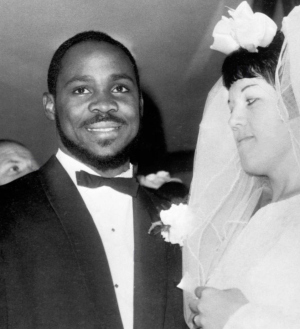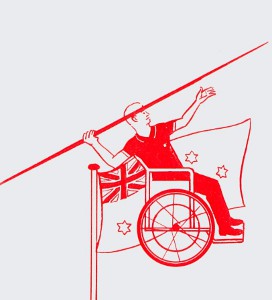| Personal information | |||||||||||||||
|---|---|---|---|---|---|---|---|---|---|---|---|---|---|---|---|
| Nationality | |||||||||||||||
| Born | First quarter 1947 Gateshead, England | ||||||||||||||
| Died | 17 June 2010 (aged 63) Mallorca, Spain | ||||||||||||||
Medal record
| |||||||||||||||
Dorinda Fraser (1947-2010), was a female swimmer who competed for England.
| Personal information | |||||||||||||||
|---|---|---|---|---|---|---|---|---|---|---|---|---|---|---|---|
| Nationality | |||||||||||||||
| Born | First quarter 1947 Gateshead, England | ||||||||||||||
| Died | 17 June 2010 (aged 63) Mallorca, Spain | ||||||||||||||
Medal record
| |||||||||||||||
Dorinda Fraser (1947-2010), was a female swimmer who competed for England.
She represented England and won a bronze medal in 110 yards breaststroke, at the 1962 British Empire and Commonwealth Games in Perth, Western Australia. [1] [2]

The Commonwealth Games is a quadrennial international multi-sport event among athletes from the Commonwealth of Nations, which consists mostly, but not exclusively, of territories of the former British Empire. The event was first held in 1930 as the British Empire Games and, with the exception of 1942 and 1946, has successively run every four years since. The event was called the British Empire Games from 1930 to 1950, the British Empire and Commonwealth Games from 1954 to 1966, and the British Commonwealth Games from 1970 to 1974. The event removed the word British from its title for the 1978 Games and has maintained its current name ever since.
Sheila Sherwood is a former international long jumper whose career highlights included a silver medal at the 1968 Summer Olympics in Mexico, and a gold medal at the 1970 British Commonwealth Games in Edinburgh. She competed in three consecutive Summer Olympic Games and had a career best distance of 6.73 metres.

Australia first competed at the Games, then titled the British Empire Games, in 1930; and is one of only six countries to have sent athletes to every Commonwealth Games. The others are Canada, England, New Zealand, Scotland, and Wales. Australian athletes competed for Australasia at the 1911 Festival of the Empire, the forerunner to the British Empire Games.

Dorothy Ada Emerson is a British athlete, who mainly competed in the women's high jump event.
Todd Anthony Bennett was a British athlete who competed mainly in the 400 metres.
Philip "Phil" Andrew Brown is a British retired athlete who competed mainly in the 400 metres.
Brian Leonard Kilby was a marathon runner from Great Britain.

New Zealand has competed in all of the Commonwealth Games since the first in 1930, and has won a total of 656 medals including 159 gold.
Suzanne Allday-Goodison was an English discus thrower and shot putter. She was born in Shoreham-by-Sea, West Sussex.
Andrew 'Howard' Payne was an English Olympic track and field athlete. He specialised in the hammer throw event during his career.

Louis George Martin was a British middle-heavyweight weightlifter.
Ronald René Charles Paul was a British fencer.
Roy Anselm Hollingsworth is a former international athlete.
Paul Stuart Mardle is a male former discus thrower.

The Commonwealth Paraplegic Games were an international, multi-sport event involving athletes with a disability from the Commonwealth countries. The event was sometimes referred to as the Paraplegic Empire Games and British Commonwealth Paraplegic Games. Athletes were generally those with spinal injuries or polio. The Games were an important milestone in the Paralympic sports movement as they began the decline of the Stoke Mandeville Games' dominating influence. The event was first held in 1962 and disestablished in 1974. The Games were held in the country hosting the Commonwealth Games for able-bodied athletes, a tradition eventually fully adopted by the larger Olympic and Paralympic movements.

The First Commonwealth Paraplegic Games were held in Perth, Western Australia, from 10 to 17 November 1962. These Games preceded the 1962 British Empire and Commonwealth Games which were held in Perth from 22 November to 1 December of that year. The Commonwealth Paraplegic Games were conceived by George Bedbrook after Perth won the right to host the Commonwealth Games. Great support was received from Royal Perth Hospital, a leading spinal rehabilitation centre in Australia.
John Clarey is a British former racing cyclist.
Commonwealth Games Australia (CGA) is the Commonwealth Games Association for Australia, and is responsible for representing and promoting the Commonwealth Sport movement in the country, and organises the participation of athletes at the Commonwealth Games and Commonwealth Youth Games. It changed it name from the Australian Commonwealth Games Association to Commonwealth Games Australia in 2015. The Commonwealth Games have been held in Australia five times, most recently the 2018 Commonwealth Games were held on the Gold Coast, Queensland.
Carl Smith was a British lightweight rower.
George Newton was a male weightlifter who competed for England and Great Britain, and then for New Zealand at the end of his career.